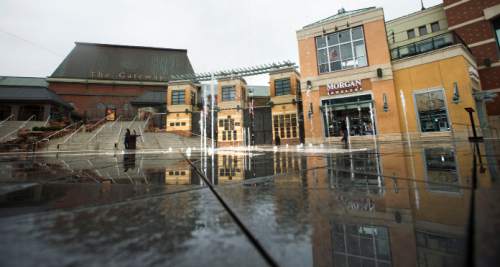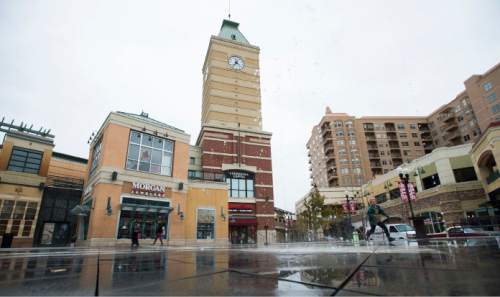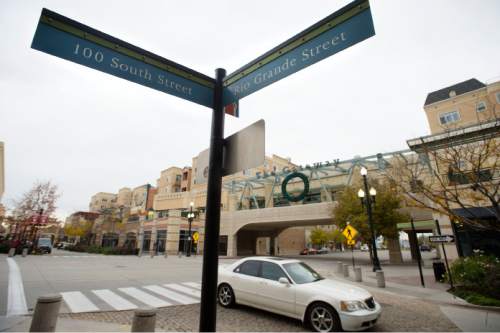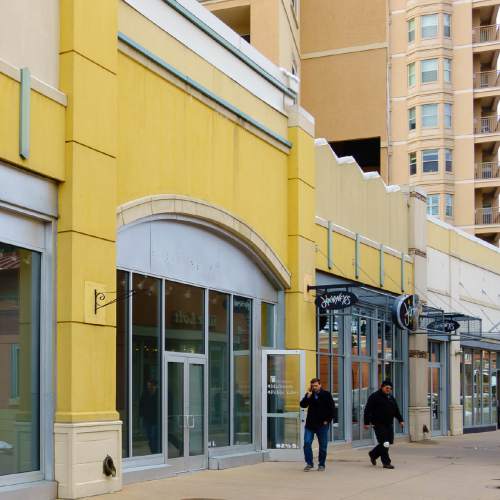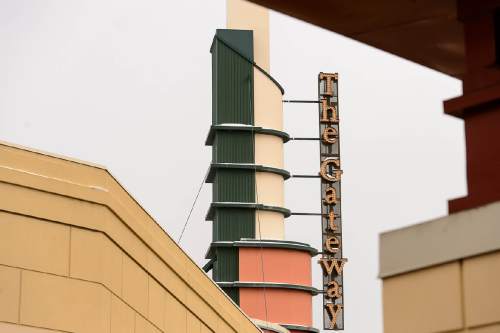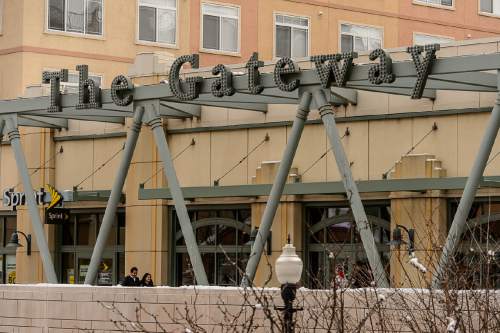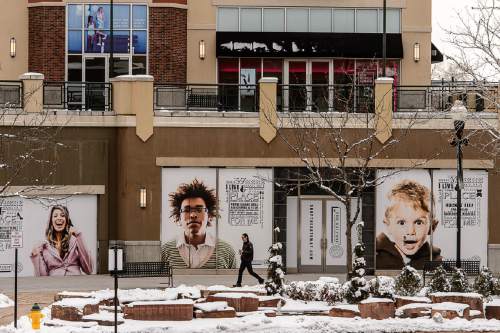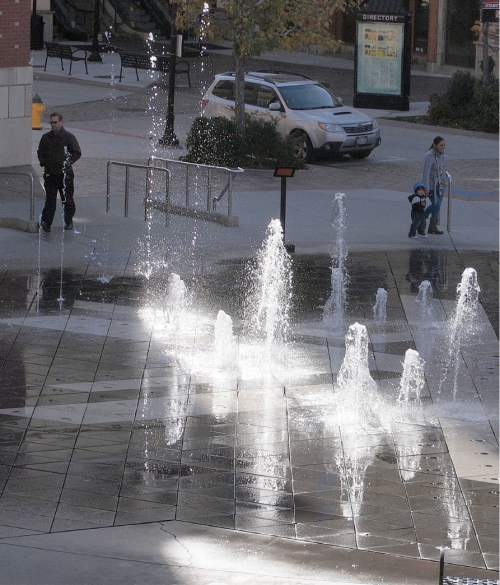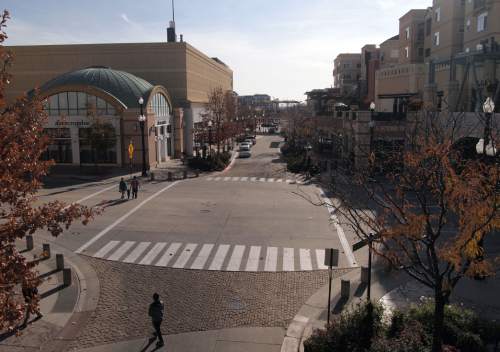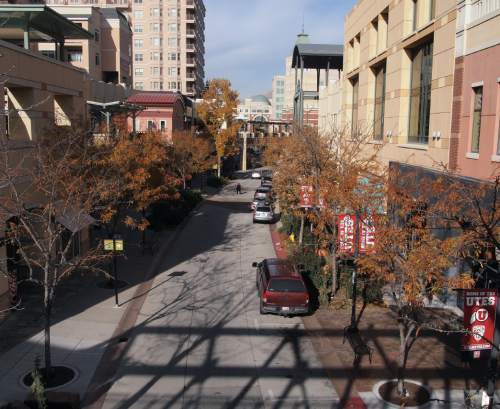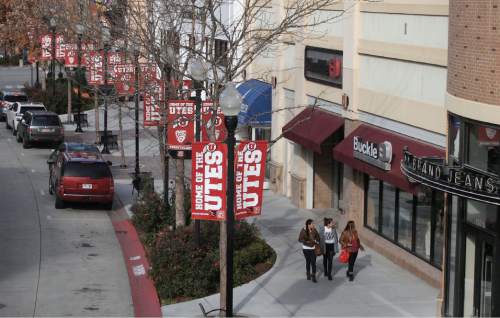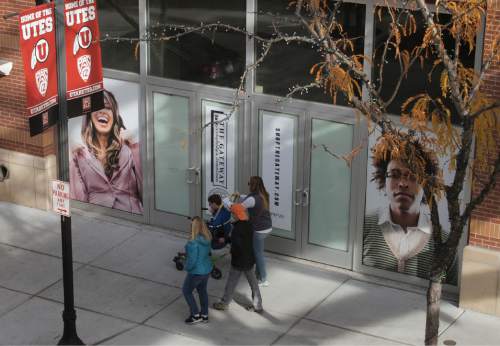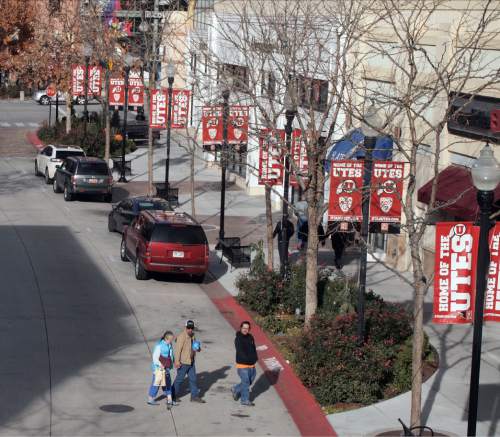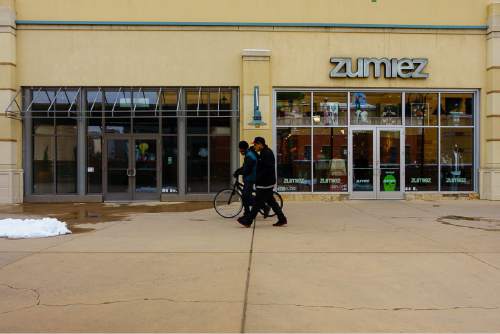This is an archived article that was published on sltrib.com in 2016, and information in the article may be outdated. It is provided only for personal research purposes and may not be reprinted.
New owners of The Gateway drew a warm reception Friday for their $30 million strategy to transform the ailing shopping center into a new entertainment, dining and social hub for Salt Lake City.
Phoenix-based Vestar, which bought the mall Feb. 1, unveiled plans for major renovations, including a new hotel, over the next three years, aimed at restoring retail occupancy, customer interest and a sense of vitality and safety to the open-air retail center.
"Our vision for The Gateway is to make Salt Lake City more hip, social and fun," said Jenny Cushing, Vestar's vice president of leasing.
Echoing comments from other gathered officials, Salt Lake City Council member Lisa Ramsey Adams told Vestar she was "thrilled to welcome you to the downtown area."
Built in 2001 with taxpayer backing, The Gateway has struggled in recent years with diminished foot traffic and sagging sales.
On Friday, Vestar President David Larcher offered new details on capital improvements for virtually every part of the 623,205-square-foot shopping center, as well as a plan to rebrand the site as an appealing place for millennials and young families.
The operator of nearly 45 Western malls hopes to recruit a new mix of local, regional and national retailers, along with additional restaurants and bars to bolster the venue's entertainment draw.
Work will begin shortly on overhauling Gateway's sidewalks, escalators and parking lots. Extensive landscaping and new outdoor furniture are also in the works, intended, Cushing said, to make the mall more attractive as a place to hang out.
"There is a lot of heavy lifting to do," she said.
A new 110-room hotel also is slated for the Union Pacific Depot, she said, and the mall will see additions of a performance stage, skating rink, loads of public art from Utah artists and year-round schedules of live music and other free events.
Cushing said Vestar intends to rebuild key traffic access points into the mall in hopes of relieving congestion during peak events at the adjacent arena where the Utah Jazz play.
The company also wants to reconfigure mall facilities near transit stations.
Mall occupancy had fallen to about 75 percent when Vestar's purchase was announced, down from 96 percent less than five years ago.
Its challenges have stemmed from heightened competition from City Creek Center, the LDS Church-built luxury mall that opened in 2012 a few blocks away on Main Street, along with years of deferred maintenance.
Larcher said Vestar "fully embraced" recently announced plans by city, county and business leaders to address the plight of homeless people, who have been drawn in recent years to The Gateway's common areas from nearby shelters and service providers. "You can have all the grandest ideas in the world," Larcher said, "but we have to have a safe, secure environment where all of us are comfortable going there day or night."
He said Vestar's recent moves of increasing mall security, restricting off-hours access and limiting smoking to designated areas "are already having a significant, positive impact on the project."
The company also is developing a dress code for the mall, but hasn't released details yet.
"We're going to be fair and open and nondiscriminatory on it, but we have to get control of the project," Larcher said.
"It's been run over, as you well know."
The Vestar president said he was not concerned that Utah's liquor laws would restrict its ability to lure new watering holes to The Gateway.
"It can be done," he said.
Twitter: @TonySemerad


